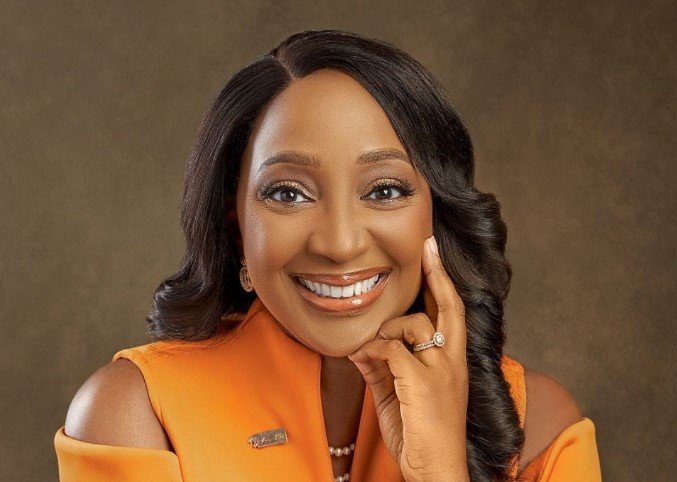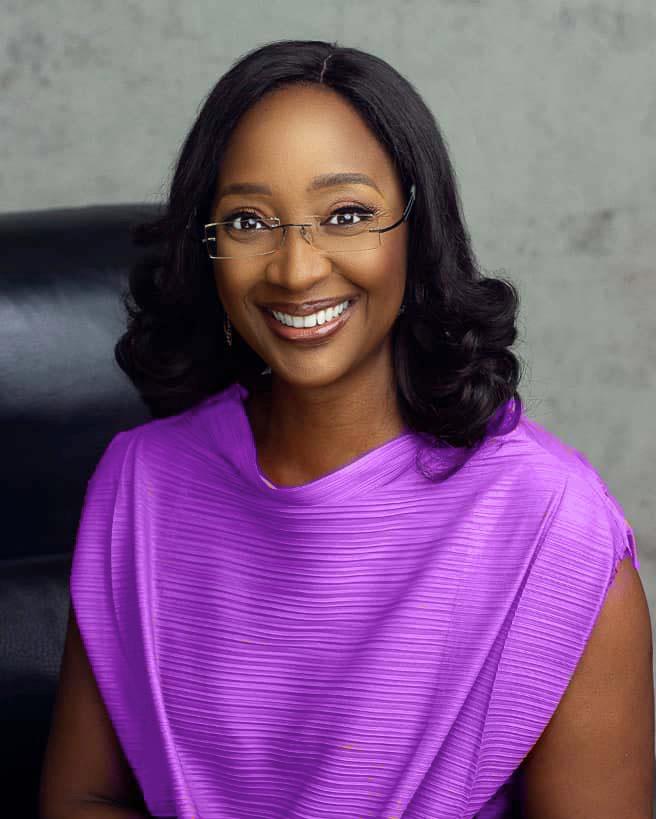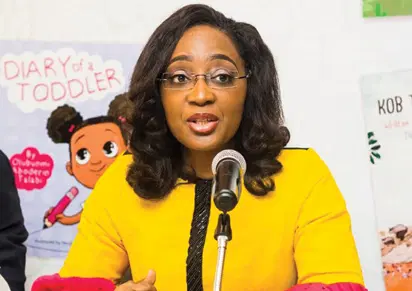At a moving graduation ceremony held in Lagos today, education advocate and business leader Olubunmi Aboderin‑Talabi delivered a compelling message to the graduates: “Education still holds the key to the future.”
Drawing from the accomplishments of prominent Nigerians across diverse fields, Aboderin‑Talabi urged the students to appreciate formal schooling not merely as a credential but as a transformative springboard for self‑actualisation and societal contribution.
Table of Contents

A Message Beyond Ceremony
Mrs. Aboderin‑Talabi spoke passionately about education as a journey of identity discovery and intellectual growth. She encouraged graduates to engage critically with the curriculum, to question boundaries, and to continuously invest in their own development.
“Education is not a passive certificate — it’s a catalyst for personal change and social impact,” she emphasised. Her remarks were grounded in real-life stories of Nigerians who leveraged formal education to become leaders, entrepreneurs, and change-makers in their communities.
Education as a Catalyst for Progress
In her speech, Aboderin‑Talabi highlighted that learning equips students with more than academic knowledge—it builds confidence, sharpens critical thinking, and expands horizons. Using local case studies, she demonstrated how graduates have used education as a launchpad to contribute meaningfully to Nigeria’s economic and civic life.
These stories, she noted, serve as proof that access to quality education remains vital for individual and national progress.

Beyond the Diploma: A Lifelong Journey
A core point of her address was that learning doesn’t end at convocation—it evolves. She called on graduates to see themselves as perpetual learners, always curious and ready to adapt. Through mentorship, voluntary service, or pursuing further qualifications, she encouraged them to keep expanding their skills long after graduation.
“Let your diploma be the first chapter, not the final one,” she asserted.
Relevance Amidst National Educational Debate
Her remarks echoed a broader discourse in Nigeria around the state of education. As policymakers debate reforms—from the adoption of a 12‑year uninterrupted basic education model to shifts in the minimum admission age for secondary and tertiary levels—Aboderin‑Talabi’s message underscored the enduring importance of formal education in a rapidly changing world.
While debates range from curriculum modernisation to restructuring of school stages, her speech reaffirmed the foundational principle: education remains the gateway to opportunity and progress.
Challenges Call for Action
Speakers like Aboderin‑Talabi contextualise their optimism within Nigeria’s ongoing education challenges: under‑funding, dilapidated infrastructure, teacher shortages, outdated curricula, exam malpractice, and uneven digital access.
Recent studies highlight acute fractures within the system:
- Teacher absenteeism and lack of professional development plague many states.
- Surveys note overcrowded classrooms, resource gaps, and obsolete learning materials.
- Widespread exam fraud, even at the primary school level, erodes trust in academic integrity.
Despite these systemic cracks, Aboderin‑Talabi’s address offered a message of hope: education—especially when pursued with resilience and purpose—can still deliver profound personal and communal advancement.
What Graduates Can Do: A Roadmap
Aboderin‑Talabi provided practical guidance for graduates to harness their education meaningfully:
- Own your learning: Be curious. Seek knowledge beyond textbooks.
- Be intentional: Identify your strengths, define your goals, and align your actions.
- Give back: Use your skills to uplift others through mentoring, volunteering, or community projects.
- Embrace lifelong growth: Pursue continuous education, whether formal or informal, to stay relevant in a changing world.
Context: Policy Reforms and Educational Initiatives
Her address intersects with several national education initiatives and reform efforts:
- Policy shifts toward a 12‑year basic education regime, merging secondary schooling with primary years, aimed at aligning with global standards and delaying entry into tertiary levels until age 16.
- The Diaspora BRIDGE platform, set to launch in late July 2025, is designed to connect Nigerian academics abroad with local institutions, enhancing research and institutional capacity.
- The Renewed Hope Agenda, unveiled by the current administration, emphasises safer schools, inclusion, and emotional well-being, supported by new guidelines and teacher training reforms.
Amid evolving government policies—from age-based admission rules to digital platforms—Aboderin‑Talabi’s message remains clear: regardless of reforms, the value of education endures.
Broader Sector Lessons and Implications
Across Nigeria, education professionals and institutions are calling for bold action:
- The National Education Strategic Roadmap Initiative (NESRI) advocates investing in infrastructure, teacher capacity, and digital learning tools.
- Educators urge curriculum reform that keeps pace with technology and labour market needs, especially around AI literacy and vocational skills.
- The World Bank and Global Partnership for Education backing of the HOPE‑EDU initiative brings over $500 million in funding to boost foundational learning, infrastructure, and teacher training for millions of primary school students.
Such developments, while systemic and institutional, spotlight the importance of individual agency—precisely what Aboderin‑Talabi championed for today’s graduates.

A Personal, Hopeful Conclusion
Aboderin‑Talabi closed her address with a personal reflection: she talked about balancing her responsibilities in business leadership and advocacy with her commitment to education. She emphasised that each graduate possesses the power not only to succeed but to transform the circumstances of others.
“When you commit yourself to learning, integrity, and compassion,” she said, “you begin to unlock doors not just for yourself, but for your community and your nation.”
As she congratulated the graduates, her final words resonated: “Your education is not just your achievement—it’s your opportunity to lead.”
Why This Story Matters
Aboderin‑Talabi’s address is symbolic: it’s a reminder that amidst policy shifts, funding debates, and infrastructure gaps, education remains the single most powerful tool for personal advancement and societal change. Her call for intentional, lifelong learning, coupled with a sense of service and self-discovery, sets a vital benchmark for Nigeria’s emerging leaders.
Join Our Social Media Channels:
WhatsApp: NaijaEyes
Facebook: NaijaEyes
Twitter: NaijaEyes
Instagram: NaijaEyes
TikTok: NaijaEyes
READ THE LATEST EDUCATION NEWS













![Tragic Incident: Fans of Seyi Vibez Die in Fatal Accident After Electrifying Lagos Concert [VIDEO] Seyi Vibez](https://naijaeyesblog.com/wp-content/uploads/2025/08/Seyi-Vibez-180x135.avif)

























